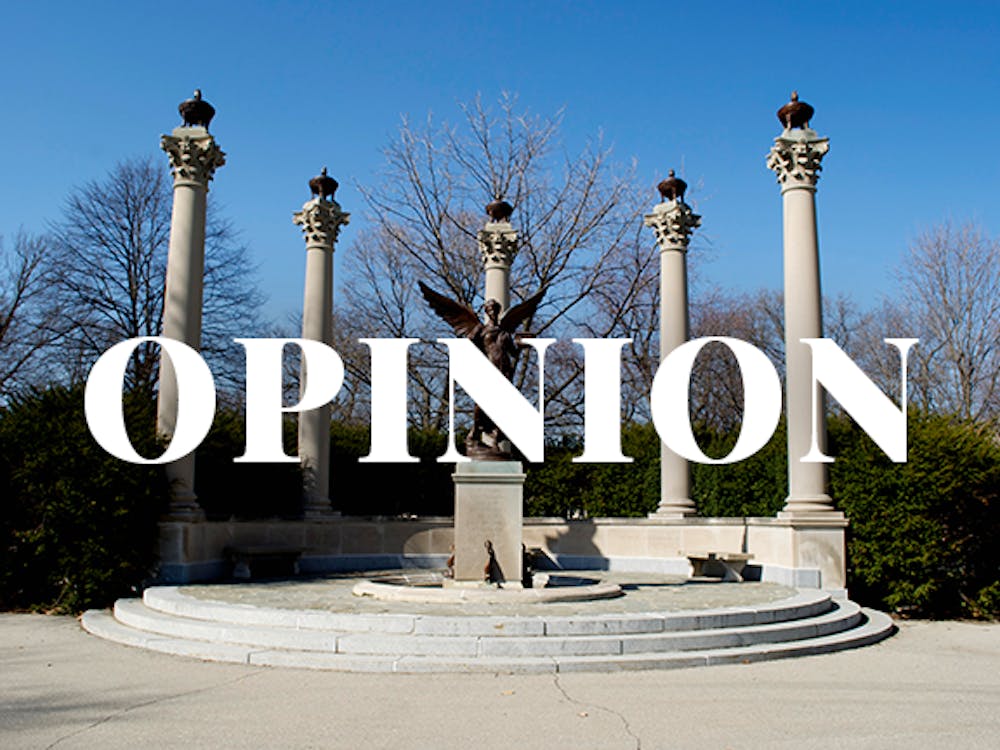Levi is a senior English major and writes "Leave it to Levi" for the Daily News. His views do not necessarily agree with those of the newspaper. Write to Levi at lctodd@bsu.edu.

Levi Todd
When the “Unite the Right” rally took place in Charlottesville, Virginia on Aug. 11, a national outcry flooded against neo-Nazis, white supremacists and Ku Klux Klan members.
The gathering was the first time some folks in my generation had seen these openly hateful, torch-wielding individuals in public and not from a photo in a history textbook. Even President Mearns made a statement on the rally during his faculty address, stating, “As a child, I ran around on the university lawn not far from where on Friday evening, white supremacists carried torches.”
The opposition to the Unite the Right rally in Charlottesville is promising. An anti-white supremacy march recently took place on Ball State’s campus, similar to the ones that have taken place nationwide, as a counterreaction to the racism invigorated by Trump’s presidency. Chants such as “No Nazis, No KKK, No Fascist USA” could be heard at these events to make it clear that many in our local communities don’t tolerate the hatred witnessed in Charlottesville.
The counter protests and outlash against these hateful groups is necessary. But we can’t center self-proclaimed white supremacists as the opposition in the fight for racial justice. It’s easy to condemn neo-Nazis who brazenly wear swastikas. It’s easy to condemn self-identified white supremacists. It’s easy to point and say “Those are the racists,” when those people are outrightly telling us “I am the racist.”
White folks, we especially need to be active in concrete ways right now, beyond just voicing opposition. Although we may not have individually voted for Trump, 57 percent of our white peers did, and we need to take responsibility for them. Sharing a meme that encourages folks to punch Nazis is one thing, but the reality is the majority of us will never meet a Nazi in person. We will, however, meet our Trump-supporting uncle at Thanksgiving. We will meet some professors who have an overwhelming majority of white writers on their syllabi. We will meet friends and family who say they oppose Black Lives Matter. And that’s when we have the opportunity to take concrete, effective action.
And it shouldn’t stop there. We can’t just say “Love trumps hate” unless we match it with a daily commitment to calling our legislators about legislative issues that threaten or target people of color (shout-out to www.5calls.org, a really helpful tool to do this). We can’t tweet our support to the mass protests we see on the news without making monthly contributions to activist organizations (such as Indy 10 Black Lives Matter). Notice how I said “daily” and “monthly” — that’s because we can’t advocate for racial justice unless we’re involved in regular action on behalf of it.
This is by no means a definitive list, especially coming from a white guy. If you’re wanting better suggestions for how to be an effective white ally, I encourage you to read authors of color and listen to what they’re calling for. (This article by Janee Woods and this one by Hannah Giorgis are great places to start.) If you’ve made it this far, go ahead and read those articles. And especially, attend Dr. Angela (freaking!) Davis’ talk on institutional racism at Emens on Friday.
But what I’m saying is that it’s easy — for white liberals especially — to congratulate ourselves for denouncing white supremacists, and that can’t be all we do. If you took one step in voicing your opposition to the hate groups in Charlottesville, fantastic. Keep it going. But back it up with action — again, and again, and again, and again.





